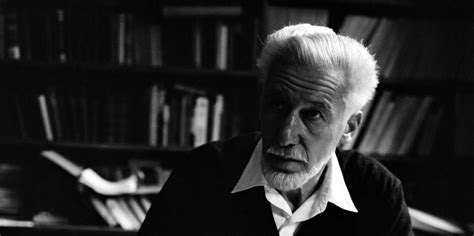A Quote by George Mason
There is a Passion natural to the Mind of man, especially a free Man, which renders him impatient of Restraint.
Related Quotes
Almost all men are born with every passion to some extent, but there is hardly a man who has not a dominant passion to which the others are subordinate. Discover this governing passion in every individual; and when you have found the master passion of a man, remember never to trust to him where that passion is concerned.
[M]an is condemned to be free. Condemned, because he did not create himself, in other respect is free; because, once thrown into the world, he is responsible for everything he does. The Existentialist does not believe in the power of passion. He will never agree that a sweeping passion is a ravaging torrent which fatally leads a man to certain acts and is therefore an excuse. He thinks that man is responsible for his passion.
Command is a mountaintop. The air breathed there is different, and the perspectives seen there are different, from those of the valley of obedience. The passion for order and the genius for construction, which are part of man's natural endowment, get full play there. The man who has grown great sees from the top of his tower what he can make, if he so wills, of the swarming masses below him.
Freedom of mind is the real freedom. A person whose mind is not free though he may not be in chains, is a slave, not a free man. One whose mind is not free, though he may not be in prison, is a prisoner and not a free man. One whose mind is not free though alive, is no better than dead. Freedom of mind is the proof of one's existence.
It is Mind which determines the change of Society, and it was because the mind at work was a Catholic mind that the slave became a serf and was on his way to becoming a peasant and a fully free man-a man free economically as well as politically. The whole spirit of the Church was for small property, and that spirit was slowly, instinctively, working for the establishment of small property throughout Christendom.
To free a man from suffering, he must be set right, put in health; and the health at the root of man's being, his rightness, is to be free from wrongness, that is, from sin. A man is right when there is no wrong in him. I do not mean set free from the sins he has done: that will follow; I mean the sins he is doing, or is capable of doing; the sins in his being which spoil his nature — the wrongness in him — the evil he consents to; the sin he is, which makes him do the sin he does.
According to the technical language of old writers, a thing and its qualities are described as subject and attributes; and thus a man's faculties and acts are attributes of which he is the subject. The mind is the subject in which ideas inhere. Moreover, the man's faculties and acts are employed upon external objects; and from objects all his sensations arise. Hence the part of a man's knowledge which belongs to his own mind, is subjective: that which flows in upon him from the world external to him, is objective.
To abandon the struggle for private happiness, to expel all eagerness of temporary desire, to burn with passion for eternal things-this is emancipation, and this is the free man's worship... United with his fellow men by the strongest of all ties, the tie of a common doom, the free man finds that a new vision is with him always, shedding over every daily task the light of love.












































